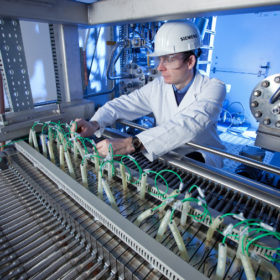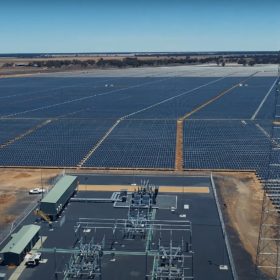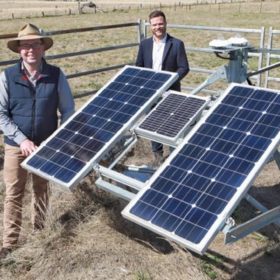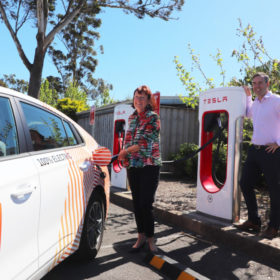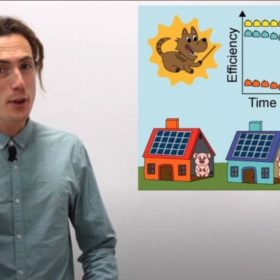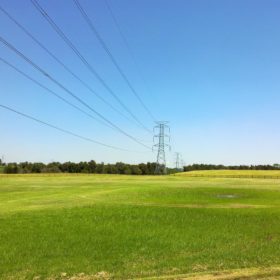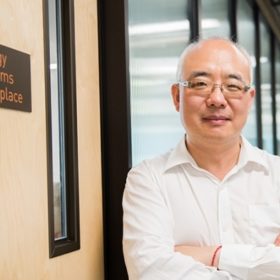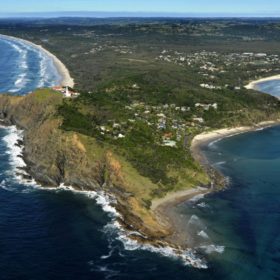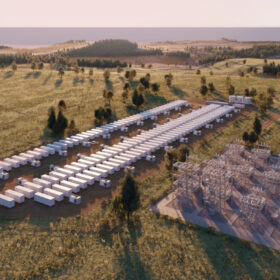UNSW researchers calculate the inevitability of green hydrogen
Researchers from the University of New South Wales have run the numbers, run them again, and then run them a third time to make triply sure. Australia’s solar resources and the rapidly falling costs of solar-powered hydrogen production mean that the future hydrogen economy is green whether the Morrison Government likes it or not.
The way of zen: CSIRO signs 10-year PPA with Ross Garnaut’s Zen Energy
The CSIRO, Australia’s national science agency, has signed a 10-year PPA with Ross Garnaut’s Zen Energy. The deal will see solar energy from the Nurmurkah Solar Farm and the Nevertire Solar Farm halve the agency’s emissions.
Elecnor appointed EPC on Australia’s biggest hybrid solar/battery project
Australia’s utility-scale solar is not untouchable. In a major win for the country’s clean-energy sector, UPC\AC Renewables yesterday announced the appointment of an EPC for the first phase of its 720 MW New England Solar Farm and colocated potential 400 MW battery energy storage system.
AGL expands VPP with solar battery sales to eastern states
AGL Energy has expanded its solar battery VPP to Queensland, New South Wales and Victoria with the immediate launch of solar battery sales for residents of the eastern states, while solar and battery bundles will be available by the end of the year.
NSW coal country commits to clean energy transition
A new raft of councils across New South Wales’ coal country have committed to climate action and renewable energies are joining the Cities Power Partnership. Lake Macquarie City Council, Port Stephens Council and Cessnock City Council have followed the likes of The City of Newcastle in turning their backs on coal and gas.
UNSW doctoral student’s solar fairytale wins 3 Minute Thesis Final
UNSW Faculty of Engineering doctoral researcher Bruno Vicari Stefani won the University’s Virtual 3 Minute Thesis Final by creatively reimagining the fable of the Three Little Pigs to demonstrate how combining hydrogen with low-cost silicon in solar can improve efficiency.
All gas no brakes – Morrison Government spares some change for transmission upgrades
In a week dominated by the Morrison Government’s announcement of its gas-led strategy for economic recovery, it also committed $250 million to critical transmission infrastructure projects. At the same time TransGrid announced 6,900 MW of renewable investment interest in its New England Transmission Infrastructure project.
Green light for the $300 million green Bundaberg Hydrogen Hub
The first of three large-scale green hydrogen plants in the pipeline of the Green Hydrogen Australia Group has been given the green light. The Bundaberg Hydrogen Hub, featuring an 80 MW hydrogen electrolyser, will produce clean hydrogen for Australian hydrogen vehicle developer H2X.
UNSW’s grid-guru Prof. Dong nominated for global energy gong
University of New South Wales’ Professor Joe Dong, the grid-guru overseeing some of the most innovative and integral research projects determining Australia’s trajectory to a grid energised by renewables, has been nominated for the Global Energy Prize.
Byron Shire Council’s draft net zero action plan is a demonstration of good framing policy
It is not surprising that Byron Bay is ahead on its eco-friendly activity, but Byron Shire Council’s latest draft Net Zero Emissions Action Plan is an example of how framing policy can provide the active space for energy transition – an example the Morrison Government would be wise to follow.
